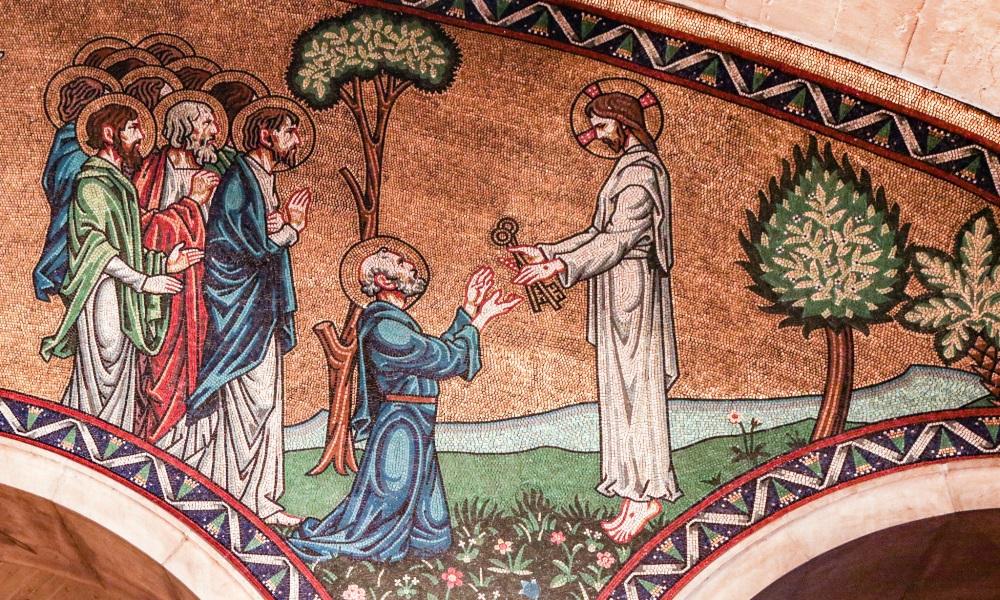
What Are Indulgences All About?
Question: I'm a recent convert from a Protestant church. My new Catholic friends have mentioned the graces that come with indulgences, but I'm a little uneducated about what it all means. Is this something I should pursue, and why would it be beneficial for me to receive indulgences?
Answer: The Catholic Doctrine of Indulgences can carry negative connotations for our brothers and sisters belonging to the churches of the Protestant Reformation. Abuses around the practice of indulgences was one of the troublesome issues for the Reformers. Nevertheless, the Doctrine of Indulgences is rooted in the "truths which the Church, illumined by the Word of God, has always believed." Specifically, Catholics believe that "sin damages others and becomes a stumbling block on the path of holiness, just as our holiness benefits others." Therefore, we can assist ourselves and others as we make our pilgrimage to heaven by devotional practices and acts of virtue. (cf. Pope Paul VI - Apostolic Constitution on Indulgences).
Indulgences are attached to certain devotional practices from the Church’s inheritance of spiritual goods, which serve as penances. Indulgences are meant to be medicinal, to remove the temporal punishment due to sin. By indulgences the Church helps the Christian Faithful atone for sin and repair the damage done by sin to oneself, the ecclesial communion, and the unity of the human family. Here is meant not only our own sins but the sins of others and the sin of the world.
Granting indulgences is an exercise of the "Power of the Keys" — the power to bind and to loosen— given to Peter and the Apostles by Christ. “I will give you the keys to the kingdom of heaven. Whatever you bind on earth shall be bound in heaven, and whatever you loose on earth shall be loosed in heaven." (Matthew 16: 19).
Through indulgences, the Church helps the Christian Faithful do penance for the remission of sins. The Church has organized these penitential practices to which an indulgence is attached in a liturgical book known as the Enchiridion Indulgentiarum or Handbook of Indulgences. In the Handbook, the Church lists the most important prayers, devotional practices, and works of piety. The Church attaches an indulgence to these penitential practices, so the Christian Faithful by drawing closer to the mysteries of our redemption, may seek atonement and reparation for sins for themselves or for one who has died.
When seeking indulgences, one is called to have a proper disposition. Therefore, it is required that a person fulfill certain conditions, normally Sacramental Confession, reception of the Eucharist, and prayer for the Pope and his intentions.
In his encyclical on the Theological Virtue of Hope (Spes Slavi), Pope Benedict XVI described the work of penance using a beautiful image from St. Augustine. The Saint preached about how God prepares the human heart for grace: Suppose that God wishes to fill you with honey [a symbol of God's tenderness and goodness]; but if you are full of vinegar, where will you put the honey?" The vessel, that is your heart, must first be enlarged and then cleansed, freed from the vinegar and its taste. This requires hard work and is painful, but in this way alone do we become suited to that for which we are destined."
The works performed to obtain an indulgence are how we can cooperate with God to remove the residue of sin (the taste of vinegar) from our hearts so that God can fill us with his grace.
Father Joe Waters is Judicial Vicar and Censor Librorum of the Diocese of St. Petersburg. If you have a question you would like us to consider for this series, email communicate@dosp.org.
Photo Caption: Mosaic from St Peter's chapel in the crypt of Westminster Cathedral, London. Photo by Fr. Lawrence Lew, O.P.



